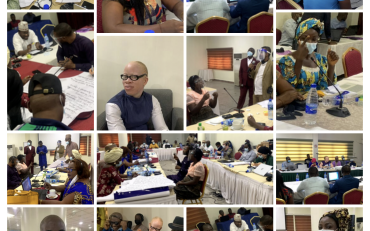From the 22 to 24 February, the Joint of National Association of Persons with Disabilities (JONAPWD), the West Africa Federation of the Disabled (WAFOD), the African Disability Forum (ADF) and IDA organized a three day training workshop on Inclusive Education for West African representatives of organizations of persons with disabilities (OPDs), in English, French and Nigerian Sign Languages.
All organizers heartfully thank the support from the UK Foreign, Commonwealth and Development Office (FCDO) and the Norwegian Agency for Development Cooperation (NORAD).
“This workshop represented a great opportunity for ADF, WAFOD, JONAPWD and IDA to be together and benefit from a very diverse range of experiences and from learning from each other. It is our hope that it was useful for Nigeria and JONAPWD to have the experiences of other countries as well,” expressed Idriss Maiga, ADF’s Chair.
The workshop brought together 26 participants and facilitators from ten African countries, namely, Nigeria, Burkina Faso, Ghana, Gambia, Niger, Rwanda, Sudan, Senegal, Togo, Tunisia, from different constituencies, including people affected by leprosy, Deaf people, persons with albinism and persons with psychosocial disabilities.
From education to quality inclusive education for all
In the first day of the workshop, participants have been introduced to different concepts related to inclusive education, including discussions on education as a human right, as well as the linkages between the right to education and the realization of other human rights.
Then, participants built together a timeline with key international frameworks on the right to education, and discussed key features of inclusive education. Furthermore, participants talked about the evolution of the concept of inclusive education. Then, participants learned about the process of IDA’s Task Team to develop its Position Paper on Inclusive Education, with the different questions and challenges they had to answer during this process.
From theory to practice
In the following day, participants discussed about different advocacy strategies towards the recognition of States Obligations to implement quality inclusive education for all and how to evaluate the public policies using the 4As & Q methodology as well as the progressive and immediate realization, and the minimum core obligation regarding education.
Furthermore, they examined the principle of non-discrimination related to Education, with elements of reasonable accommodation, legal framework, the principle of universal design for learning, the importance of data collection and analysis, among others.
The day was concluded with an in-depth analysis of different features of educational systems.
Policy exchange session
In the last day, participants developed an overview of what a quality inclusive educational system look like, starting from the classroom towards the Ministry of Education. It was followed by a session on the Universal Design for Learning with participants presenting in diverse methodologies how they would envisage a quality inclusive educational system.
Participants also analised national policies and legal frameworks of their own countries providing concrete recommendations based on their learnings from the previous days, and comparing the current policies in their countries with what should be implemented considering a quality inclusive educational system.
The workshop was concluded with an exchange session with representatives of IDDC members, including from Sightsavers and the Leprosy Mission, that provided a brief presentation about their work, achievements and role to make inclusive education in Nigeria as well as key challenges they encountered to promote inclusive education in collaboration with the Nigerian Government and DPOs, which was followed by a Q&A moment.
Testimonies
“It was a critical moment for the DPOs of the region. It was very needed to have this workshop. We could observe that, in the beginning of the week, participants had a diverse understanding about inclusive education. This workshop allowed us to exchange and have a common understanding, being back to the basic principles and features of a quality inclusive educational system. It was a critical open-eyes moment for all of us and we left Nigeria enriched of experiences and learnings”.
-Mohamadou Oumarou, Fellow ADF-WAFOD-IDA and moderator of the workshop
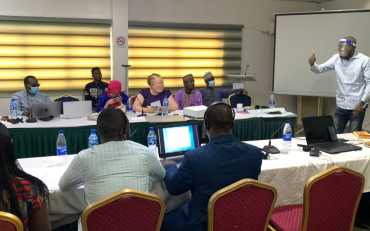
“The workshop was ideal and timely, as the GDS 2022 just concluded last week. It brought synergies and will help participants in their advocacy and follow-up work on the GDS commitments on Inclusive Education. The Workshop also have added my knowledge and methods on Inclusive Facilitating as one. I had a lot of awesome learning from the expert facilitators’ leaders”.
-Sulayman Ujah, Bridge CRPD-SDGs Alumni and co-facilitator
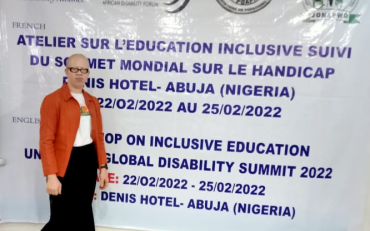
“It’s such a great workshop and topic we need to highlight, and in my cluster, I’m going to pass the message and share the information and knowledge I learned in the workshop to persons with albinism, in order for us all to have contributions and advocacy, in any opportunity or media space we might have”.
-Nnene Bassey, President of the Association of Persons with Albinism, Nigeria
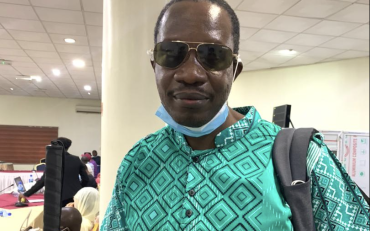
“Participants raised relevant issues during the Inclusive Education workshop, which indicates how important was the workshop and its content; even for advocates of the CRPD implementation. As an activist in advocacy on issues of disability, I’ve learned very useful and practical things that will inform my future advocacy”.
-Alexander William, Federation of Ghana
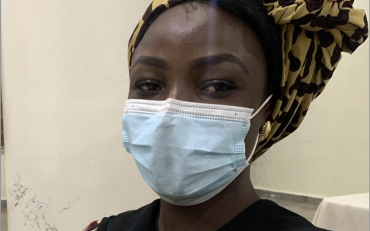
“I learned that the needs for persons with disabilities should be met, and to advocate for more inclusion in our society, so no one should be left behind. I’ll implement what I learned in my advocacy.”
-Ganiye Gideon, Nigeria
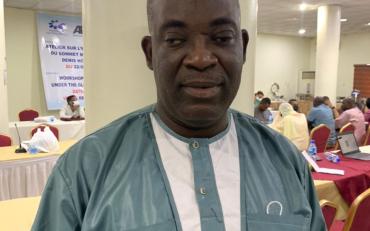
“It became clear for me the difference between integrated education and inclusive education after the workshop. The tools and methodology used by the facilitators are very simple and also concrete, and it helped me in understanding many aspects, and will indeed make it clearer for me when advocating for Inclusive Education”.
Komivi Ayassou, ADF, Togo
